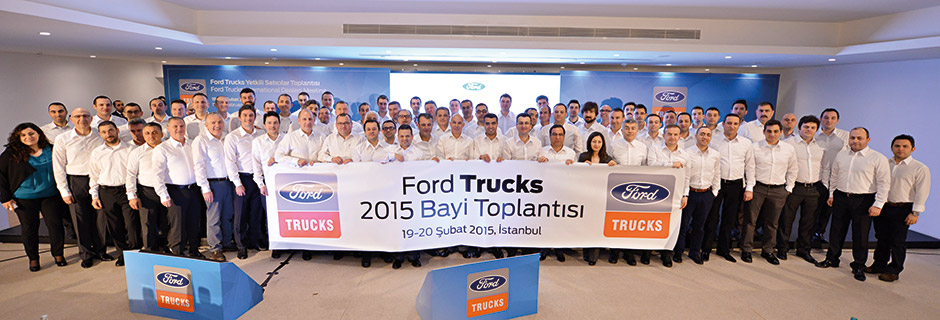Dealers And Suppliers

For automotive manufacturers, the existence of a well-developed value chain is crucial for consistency, quality, efficiency and customer satisfaction. Our distributors and suppliers play a crucial role in our broad value chain, and thus, for a sustainable business model we constantly contribute to enhancing the business success of our dealers and suppliers.
We encourage our suppliers to develop systems and practices in primary sustainability fields such as quality, efficiency, human rights, working environment and environmental performance. We include these expectations in our purchasing agreements and actively monitor their compliance. We do not tolerate any working practices such as forced, unpaid or child labour, and expect our suppliers and partners to internalise the same approach to the principles of human rights in all of their operations. We include these principles as part of the service and investment agreements we sign with suppliers and partners to serve as a guarantee. Similarly, we give constant training in human rights, social ethics and issues regarding work life to all of our suppliers.

Just as with our suppliers, so too do we value the success of our dealers and authorised services. We aim to contribute to the technical strength, capacity, and knowledge of our dealers through specially-designed training opportunities. At regular intervals, we also ask for their own views and ideas, in order that we can improve our own practices accordingly.
With the aim of increasing the energy efficiency of our dealers and meeting the energy of the vehicles and the energy of our dealers within the scope of electric vehicle transformation; as 2022 we have completed solar energy panel investments in 11 of our dealers and complated in most of our dealers the transition to energy saving LED lighting systems and the transition to energy and heat-saving glasses.
To support our long-term sustainability goals, the Supplier Sustainability Assessment and Development Program was launched by the Purchasing Leadership in 2022. As part of this initiative, in collaboration with an independent third-party audit firm, sustainability trainings, assessments, and audits were conducted for suppliers up to 2023. The initial pilot assessments covered a total of 233 Tier-1 suppliers, including 18 critical suppliers. The assessment scope includes key areas such as Labor, Health & Safety, Environment, Ethics, and Management Systems.
In 2023, the assessment questionnaire was expanded, and new topics such as environment, energy, greenhouse gases, and conflict minerals were incorporated through monitoring forms. A total of 238 suppliers were audited, 37 of which were identified as critical suppliers. Additional questions aligned with the GRI reporting standards and global sustainability indices enabled deeper evaluations for critical suppliers on topics including business ethics, child labor, and health and safety.
During the audits, the independent audit firm utilizes a customized methodology based on international standards including SEDEX, RBA, and RSCI.
At the Supplier Sustainability Workshop held in November 2023, we came together with our critical suppliers to define 6-month, 1-year, and 2-year ESG and supply chain goals. These targets include establishing ethics hotlines, creating sustainability governance models, appointing sustainability leads, and initiating CDP reporting.
As part of our Supplier Sustainability Capacity Development Program, we regularly engage with our suppliers, encourage the sharing of best practices, and monitor the implementation of action plans aligned with our sustainability roadmap. We aim to accelerate transformation by placing a particular focus on our critical suppliers.
As of 2024, we began organizing Supplier Sustainability Committee meetings with critical suppliers. These meetings serve as a platform to evaluate action plans, share best practices, and offer targeted training led by subject matter experts. In addition, sustainability webinars held throughout the year support the broader development of our local suppliers. Based on the feedback received after each training and meeting, the content is continuously updated to ensure active participation from our suppliers in the process.
As of 2025, sustainability assessments are conducted through the Sustainability Assessment Questionnaire (SAQ) platform. Supplier responses and supporting evidence documents are reviewed by verification teams. Starting this year, our logistics service providers have also been integrated into our sustainability program and evaluation processes.
As of 2025, we have integrated sustainability performance into our supplier selection criteria. We expect all our Tier-1 suppliers to meet these requirements, and we will not cooperate with suppliers that do not meet the established sustainability standards.
To increase internal awareness, we regularly provide sustainability training to teams reporting to supply chain leadership.
In line with the Supplier ESG Guide published by Koç Holding in 2024, our supplier categorization has been updated:
• Critical Suppliers are suppliers with high business relevance that directly impact production, supply high volume or hard to replace products/services, and represent at least 80% of total procurement spend.
• Significant suppliers are suppliers that are identified as having significant business relevance to the company or substantial risks of negative ESG impacts or a combination of both.
We identify companies subject to business ethics audits by evaluating their survey results, past performance, and compliance with regulatory requirements.
Performance Indicators (KPIs) for 2024;
• We have 882 Tier-1 suppliers providing parts for vehicles.
• Of these, 135 are classified as significant suppliers.
• 17 logistics service providers participated in our supplier sustainability survey, 6 of which were classified as significant suppliers.
• In total, 141 suppliers fall under the significant category.
• Since 2023, a total of 255 companies (238 Tier-1 suppliers + 17 logistics providers) have completed the sustainability survey.
• 49 Tier-1 suppliers have participated in our Supplier Sustainability Capacity Development Program.
At the 2025 Supplier Summit, in addition to categories such as quality and cost, Sustainability Award was presented for the first time.

